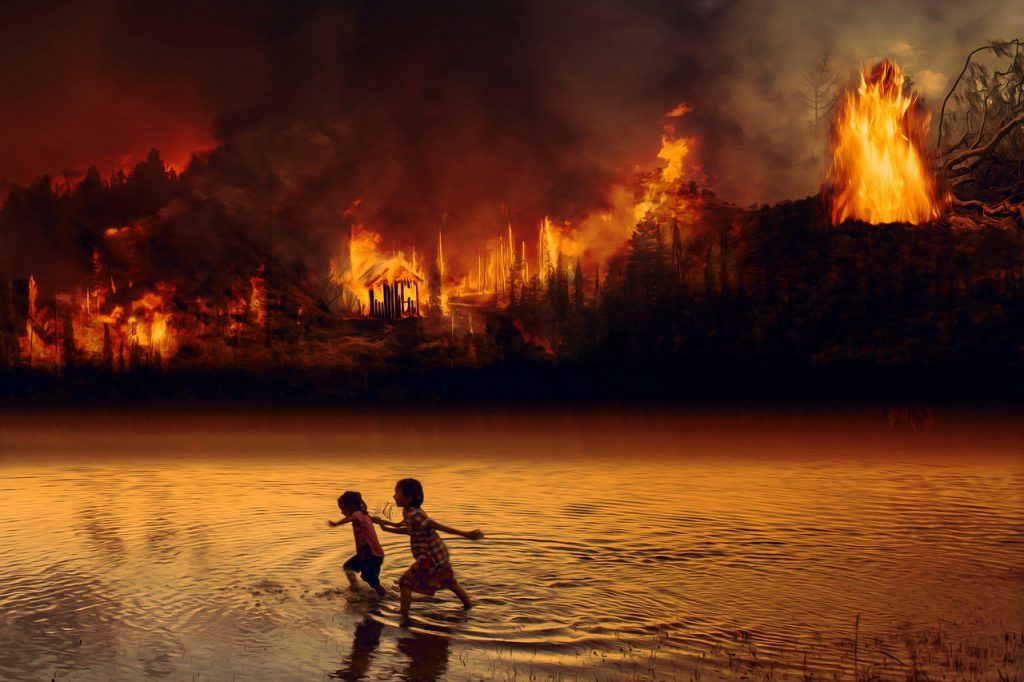Like many of you, I find myself still busy, but also with a lot of time to think. COVID-19 is a horrible pandemic, but I also believe it may be an antibody generated by our planet’s immune system. We’ve ignored scientists for years and watched our planet struggle through hurricanes, floods, and fires — all a result of global warming. I ask myself: what if global warming is Mother Nature’s fever? And what if she has this “fever” because we, the humans who inhabit her beautiful land, have become her virus?
Yes, I’m saying people are a virus to planet earth. But hear me out.
When our body detects a possible health risk, it goes into action. First, recognizing the potentially dangerous foreign intruder, and then, trying to fight it off. Some common initial defense mechanisms include swelling, fever, and pain. It’s our bodies’ way of alerting us we are in danger. And it’s a highly effective survival mechanism.

Perhaps, then, if we consider the earth as a body, an outbreak like the Coronavirus is acting as part of its “immune system,” alerting it that its health is at great risk. Global warming is her fever. We’re trying to fight off an attack, as is she. We cannot expect to exploit our ecosystem without her fighting back. Step 1 is fever, step 2 is fighting back with the antibodies.
If humans are indeed a virus for our planet, do we have a choice as to what kind of virus we can be? In the midst of a pandemic, we have only the bad viruses in mind, naturally. Yet, of the hundreds of thousands of known viruses in the world, not all are created equal. There are, for instance, those viruses that cause infections in humans at a young age, which are important to ensure the proper development of our immune systems to better protect our health into adulthood.
Then there are “good viruses,” which can provide essential functions and conditionally benefit different hosts, including bacteria, insects, plants, fungi, and animals. For example, certain plant viruses actually help their hosts, enhancing tolerance to droughts.
Personally, I want to be a good virus, one that helps restore our home.
Various social distancing measures now in-effect across the world are challenging us — particularly in developed countries — to reinvent how we live and work. By leveraging technology we are adapting too remote: working, education, exercise, and social interactions. Reducing air and vehicular travel, manufacturing and fuel consumption en masse is producing unexpected (to those of us who aren’t scientists) yet welcome outcomes! We’re seeing reduced air pollution levels in China in just two months! And around the world, reports of clearer waterways, cleaner air, and even more wildlife popping up.
A number of people are also paying attention to the way we grow and consume food, given that the Coronavirus and most pandemics since the Spanish flu 100 years ago have been traced back to the consumption of wild animals and factory farming. It’s about time! Last month China banned the consumption of wild animals, bravo! Today, the Chinese city of Shenzhen became the first in the nation to ban the consumption of dogs and cats. And there is now a rise in plant-based meat alternatives that are becoming tastier, more affordable, and more widely available than ever before — this will further mitigate climate change by reducing carbon emissions from livestock farming.

Viruses are resilient, resourceful, and creative. So are its human and planet hosts. Our planet existed long before humans came along. We will die before she does, too. And we will see more severe reactions from Mother Earth warning us of our demise unless we pay attention to what we’re experiencing right now. Either we behave or we become extinct. It’s that simple.
